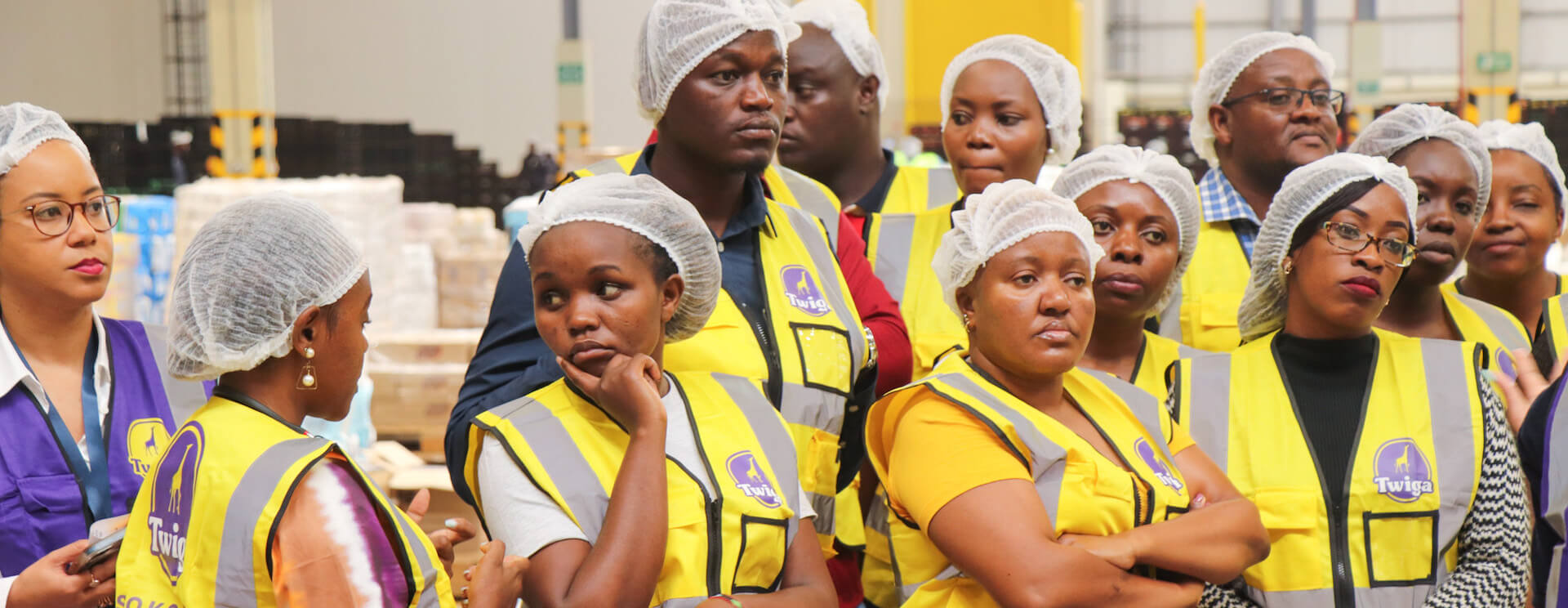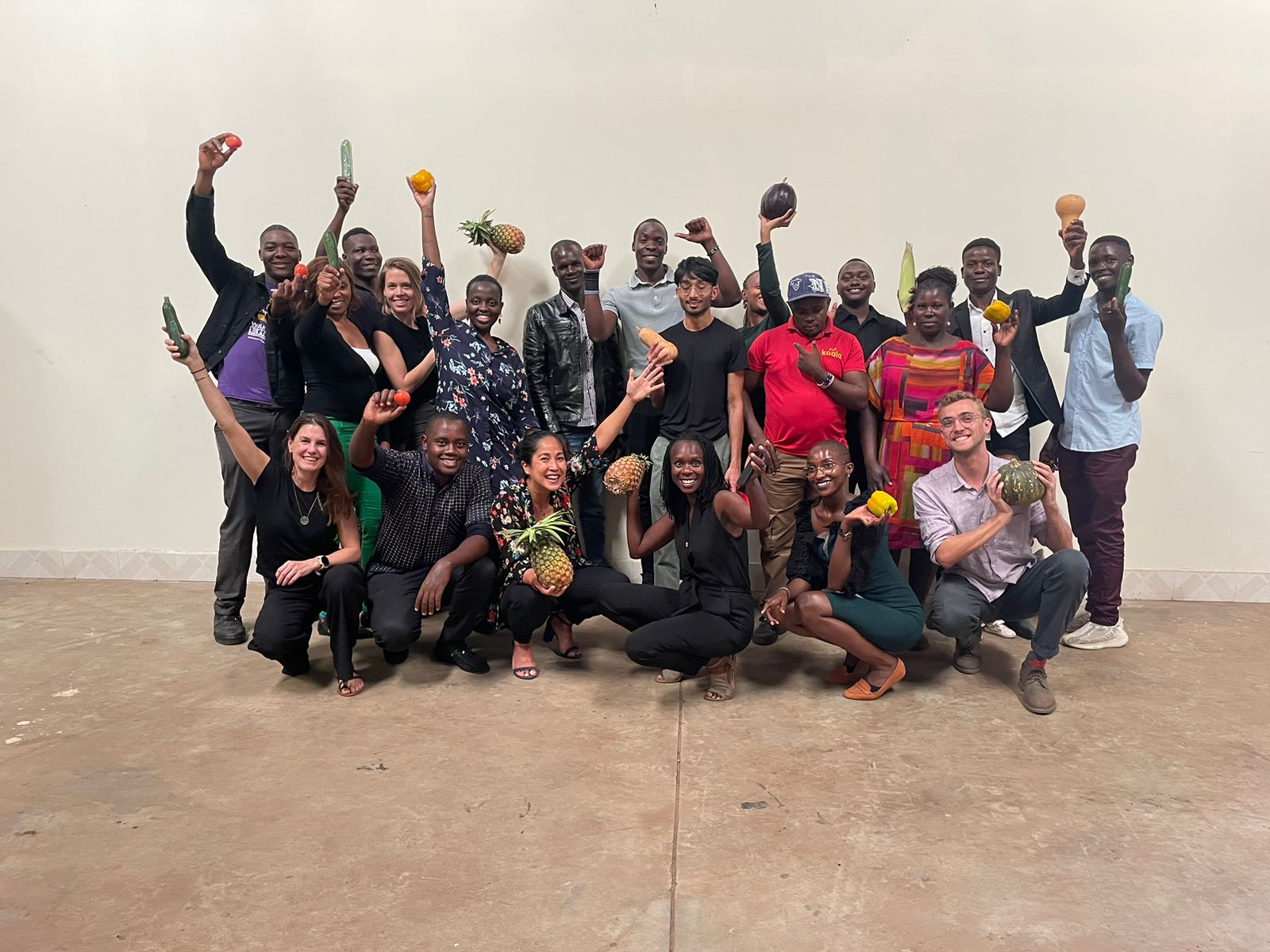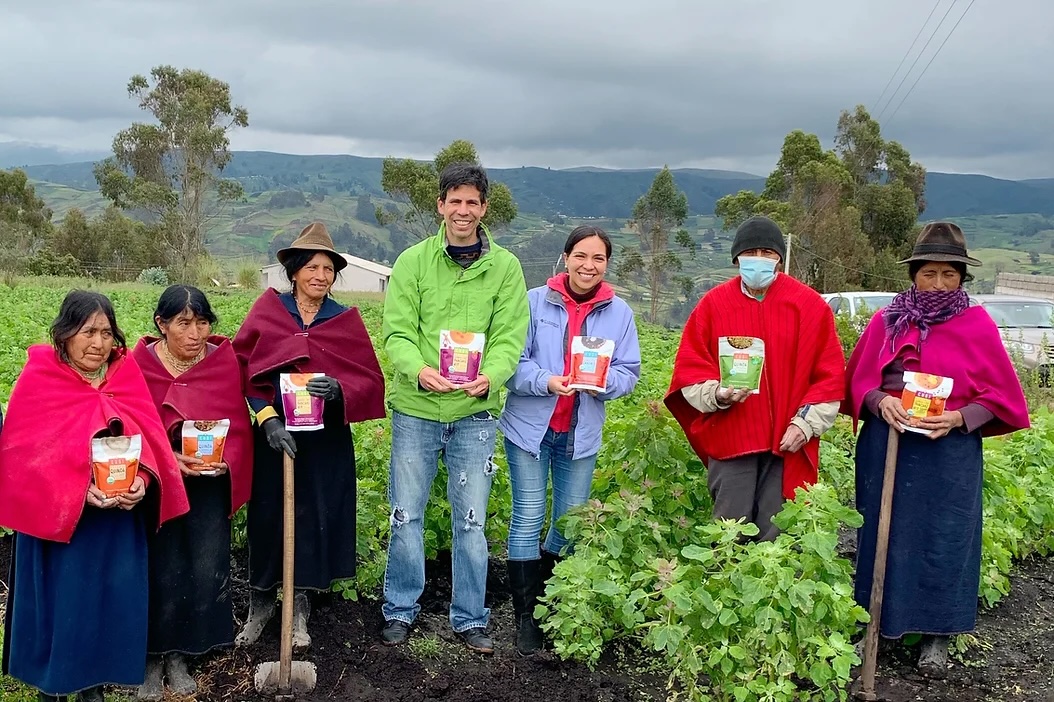ImpactAlpha, August 30 – The emerging markets impact story of the pandemic era has taken a somber turn. Small business and logistics tech startups in Kenya raised more than $150 million in 2020 and 2021 as investors woke up to the enormous opportunity of formalizing informal business channels and streamlining fragmented supply chains. Now some of the most prominent companies are pulling out of markets, firing large numbers of workers, or closing up altogether.
Food distributor Twiga Foods this month announced it was cutting a third of its staff in its third round of layoffs. The company, which sources and delivers fresh foods to informal shops and vendors in Kenya and Uganda, has been trying to raise its Series D equity round after raising $50 million in 2021 – the height of the VC market.
Sendy, which supplied essential consumer goods to informal and small retailers, shut down this month. The company raised $20 million in 2020, including from impact investment firms VestedWorld and Goodwell Investments, but ran out of cash and hasn’t been able to raise additional funding.
Copia in July announced its third round of layoffs and a decision to pull out of Uganda. The rural e-commerce company, which offers a catalog of products to people living beyond normal delivery areas, has raised more than $100 million, including a $50 million Series C round in January 2022 led by Goodwell.
Tough market
Startups have pinned the restructurings and corrections to broader market forces. Copia’s statement on its latest layoffs called out “the economic downturn and the constrained capital markets,” which “require Copia to undergo a limited restructure of its operations.” Twiga CEO Peter Njonjo on Medium wrote that investors are not “as willing to take on the risk of investing in startups, especially in emerging markets.”
Businesses are also being affected by inflation and its impact on consumer spending behavior.
The frothy market in which all of these companies last raised also had an impact: an abundance of capital and pressure for fast growth likely steered many tech companies prematurely into new products, services and markets. MarketForce, also in Kenya, Capiter in Egypt, Alerzo in Nigeria and others have also faced turbulence.
Navigating new turf
Shakeouts are part of the natural cycle in nascent markets; consider the consolidation over the last five years in off-grid solar or retail impact investing platforms. Companies like Twiga, Copia and Sendy are among first movers in designing tech solutions for heavily underserved populations and untapped economic sectors.
“The models for these startups include an aggregation or a distribution component where you have to bring together many smaller players,” says Anthony Kimani of E4Impact, a social enterprise accelerator in Kenya. The models can be costly, he adds. “In most cases, much of your funding goes to financing the merchant or to inventory that’s going to be passed on to smaller entities.”
Experimentation or course correction can be costly when inventory, warehousing and logistics resources are involved. If something doesn’t work in the aggregation or distribution chain, or with end buyers, “all of a sudden you don’t have the kind of growth you’re looking for,” Kimani says. “That really puts a lot of strain on businesses to get on a path to profitability.”
Sendy made multiple pivots over the past five years as it tried to crack Kenya’s logistics market. It started out with household package delivery in Nairobi, then shifted its focus to businesses–mostly in the formal retailer sector–handling their short, medium, and long-haul logistics needs.
“The company started to transition away from the growth-at-all-cost mentality towards more sustainable growth that would allow them to get to profitability in a shorter timeframe,” says Euler Bropleh of VestedWorld, a Sendy investor. It seems finally to have found the right product/market fit, he says, “but they ran out of cash.”
Twiga timeline
Twiga has also made numerous business pivots since it launched in 2014 with a mission of formalizing fresh food distribution. Its original model focused on streamlining a highly fragmented supply chain between smallholder farmers growing bananas, pineapples and other popular produce items, and the small shops and vendors where most Kenyans shop. Middlemen in the supply chain slowed the flow of goods, underpaid farmers, and drove up costs for consumers. Twiga set up direct relationships with farmers, distribution centers, delivery routes, and app for retailers to place orders, and then hired many of the middle men it sought to displace as agents, drivers and warehouse workers.
Investors bought in, supporting the company through multiple funding rounds in 2017, 2018 and 2019. A number of impact investors and development finance institutions including Omidyar Network, Blue Haven Initiative, Creadev, TLcom Capital, the International Finance Corp., Finnfund, and the US International Development Finance Corp. (then called OPIC) invested.
Twiga’s first major pivot aligned with a significant investment from Goldman Sachs. The company announced it would phase out most of its partnerships with smallholder farmers, who produce most of Kenya’s locally-grown food, in favor of working with medium and large-sized farms, from which it could ease its logistics and wholesale costs. “It’s not profitable business working with so many small farmers,” Njonjo told ImpactAlpha at the time.
He insisted the pivot was aligned with Twiga’s impact mission. “One thing we’ve been very clear on is the problem we’re trying to solve. That’s the cost of food,” he said. “We’re not trying to solve a smallholder farmer issue. We don’t have the capacity or expertise to do that.”
The following year, Njonjo and his co-founder Grant Brooke launched a new fintech company, Shara, to provide point-of-sales transactions, inventory financing and microloans to its retail partners. Brooke left Twiga to head up Shara full time. (Shara raised a $6 million seed round the following year. This May it acquired Kenyan microfinance institution Maisha Microfinance Bank. The company is actively hiring.)
Twiga rode the VC funding wave in 2021, raising $50 million for its Series C round, led by existing investor Creadev. The IFC and TLcom also reupped in the round. Njonjo said the company’s growth plans centered on becoming a “one-stop-shop for informal retailers and all their needs.” Within a year, it launched a white label product business for shelf-stable essentials like flour, cooking oil and maize meal. It committed $10 million to setting up its own commercial farm to grow tomatoes, onions and watermelons; Njonjo pegged the decision to questionable “food safety” from existing market supplies. It launched in Uganda. And it pumped millions of dollars into a new high-tech distribution center.
Troubled waters
Twiga’s business shakeout started near the end of last year, as other logistics and supply chain tech companies began announcing layoffs and other cost-cutting measures. In November, Twiga laid off its in-house sales team, equivalent to roughly 200 workers or 21% of its workforce. Instead, it shifted sales to a commission-based “field agent” model. The company said at the time that it expected to bring on 1,000 agents by the end of the first quarter of 2023. It also said it had increased pay for other full time staff.
Within months, Twiga had signed around 400 agents, but in June, it let go of 130 of them, citing underperformance. This month it let go of more than 280 employees, a third of its remaining permanent workforce, and scrapped its in-house logistics service as a cost-cutting measure. It will instead use an Uber-like logistics marketplace to contract independent truckers and drivers.
Njonjo puts the pivoting down to market experimentation and figuring out what would work from a unit economics and infrastructure standpoint. “This means making tough decisions and getting the right talent,” he wrote.
Despite the turbulence, Njonjo has made a new personal investment in the company and expects to close its Series D funding round this year. His post on Medium signaled the potential for a “down round,” whereby companies raise capital at a lower valuation from a previous round. But he also said the company has support from existing investors on its cost-cutting and strategic realignment efforts.
“Twiga has spent the last three years building a solid foundation that positions it well not only in terms of achieving profitability, but also transforming the food value chain in informal retail, a significant opportunity in Africa. We are confident in the direction the company is taking,” TLcom’s Maurizio Caio tells ImpactAlpha.
Sustainable growth
Investors that are still cutting checks have new expectations, which is pushing right-sizing measures and greater attention to unit economics among startups.
“There is a lot more pressure now on profitability as opposed to growth,” observes Kimani. “Even some of the businesses that have prioritized growth are coming under increased pressure to get on a path to profitability.”
Copia’s recent announcement about layoffs and its departure from the Ugandan market said its decisions were “consistent with many of the best companies in Africa and across the world, which are responding to the market environment and prioritizing profit.” Painful cuts today would yield “a lean and sustainable business for the long-term.”
“The reality is that this is now something all investors are talking about,” Accion Venture Lab’s Amee Parbhoo told ImpactAlpha as signs of trouble in the logistics and supply chain tech market started appearing last year. The fintech and embedded finance-focused impact investor has backed companies like Field, which is doing well helping independent African pharmacies forecast, source and pay for inventory, and Capiter, which has been rocked by turbulence and layoffs while trying to serve informal retailers in Egypt.
“Not all are going to work,” Parbhoo said. “What companies and investors are figuring out now is which models can sustainably grow and best serve these customers.”











